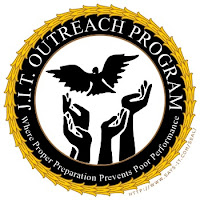Access
This issue refers to a minor’s right of access to family members and important people in his or her life. It also refers to access to the legal system. Minors have a right to reasonable access, and the cases that have addressed this issue discuss the standard of reasonableness in particular situations. The rules on mail access are more specific. The experience of being incarcerated is traumatic for youth, particularly when placed in an adult facility. Youth need the emotional support of their family, and access to the community may be critical to the success of court intervention. Thus, in D.B. v. Tewksbury the court found that children confined in a jail were deprived of their constitutional rights when they were denied regular visits, use of the telephone, and mail services. The court found that these restrictions needlessly intensified children’s fears and hostilities and were counterproductive to the goals of the juvenile justice system.
Visits
Institutions housing children must provide for reasonable visitation. Visits should be permitted during the day, with provisions for alternative visiting times for parents who are unable to visit during the normal hours. Approved visitors should include adult relatives, family friends, and siblings with approval from the minor’s probation officer or counselor.
Unfortunately, punitive attitudes, understaffing, and limited visiting areas have restricted visiting opportunities for children. The right to reasonable visitation has been litigated in a number of juvenile cases, including Ahrens v. Thomas, Thomas v. Mears, Gary W. v. State of Louisiana, and D.B. v. Tewksbury. Visitation should not be curtailed because of overcrowding or staff shortages, according to Patchette v. Nix.
Telephone Access
Case law does not set an absolute requirement for telephone use but insists a facility must provide reasonable access to telephones. Calls may be made to parents, relatives, and attorneys. Monitoring may occur only if justified. Limited staffing and few public telephones often result in undue restrictions on children’s ability to make telephone calls from jails and lockups. Juvenile cases addressing telephone use include Gary W. v. State of Louisiana and Ahrens v. Thomas.
Mail Access
There are two categories of mail: privileged and non-privileged. Privileged mail is between the child and his or her attorney, a judge, a legislator, or some other public official and is usually designated as such (e.g., “legal mail”) on the envelope. Privileged mail may not be opened by staff, except to inspect it for contraband according to Wolff v. McDonnell. Non-privileged mail is all other mail and may be opened under certain circumstances to inspect for contraband or criminal activity. Even then, staff must have facts to support their suspicions.
If mail is to be read, the individual must be given an opportunity to appeal to someone other than the person who suspects the correspondence (see Procunier v. Martinez). The U.S. Supreme Court has permitted only limited restrictions on inmate mail. Turner v. Safley addresses correspondence between adult inmates at different correctional institutions; Thornburgh v. Abbott deals with rejection of publications found detrimental to institutional
security; and Ramos v. Lamm addresses a ruling that struck down prohibition of correspondence in another language in an institution where one-third of the institutional population was Hispanic.
Access to the Courts
Correctional facilities must ensure that inmates have meaningful access to both counsel and the courts (see Younger v. Gilmore). In Bounds v. Smith, the U.S. Supreme Court held that the provision of adequate libraries or adequate assistance from persons trained in the law
would meet the constitutional requirement and that facilities should explore various avenues such as volunteer or legal services attorneys, law students, inmate paralegals, or public defenders to meet this requirement. More recently, in Lewis v. Casey the Court explained that inmates require the tools to argue their sentences or to challenge the conditions of their
confinement. The rights of illiterate or non-English-speaking inmates might necessitate the provision of special assistance.
Earlier cases found constitutional violations where prison library systems imposed hurdles to access (see Toussaint v. McCarthy). Also, courts have held that prisons that offer paralegal assistance as an alternative to providing direct library access must provide trained legal assistants, and inmates must be supplied with a reasonable amount of office materials for court filing of documents (see Gluth v. Kangas, Knop v. Johnson, and Ward v. Kort). However, the Court emphasized, in Lewis v. Casey, that constitutional violations must be measured in relation to actual, not theoretical, injuries caused by the inadequacies of libraries or other legal assistance.
Unmonitored visits with attorneys must be allowed upon reasonable request. Keker v. Procunier and Adams v. Carlson address the duty of institutions to keep lines of communication open among inmates, attorneys, and the courts. The sixth amendment also includes the right of reasonable access to attorneys to challenge unlawful conditions and seek redress of constitutional rights under Procunier v. Martinez. Inmates must also be allowed to meet with attorneys on civil matters according to U.S. v. Janis and Corpus v. Estelle.


No comments:
Post a Comment
Thank You!! Your comment has been submitted!!